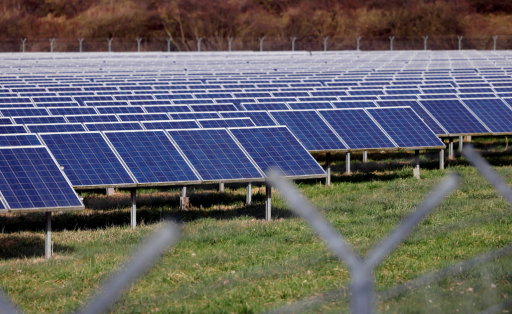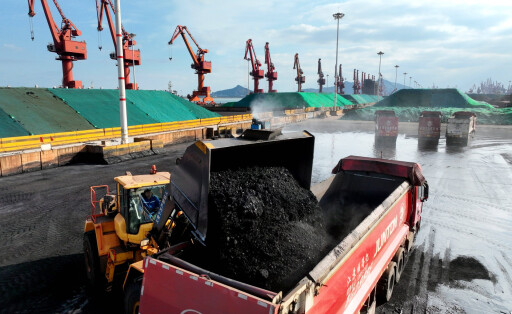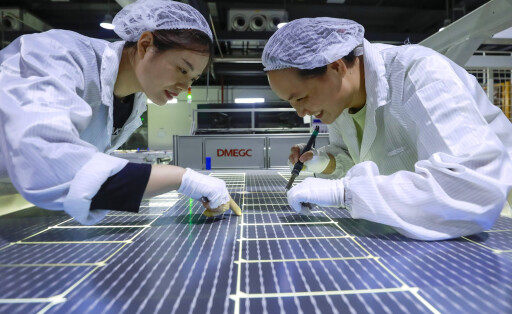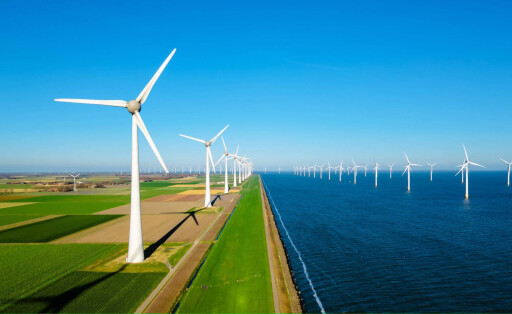China's energy supply is of global importance because of its high emissions. The People's Republic consumes 29 percent of the electricity produced worldwide. Table.Media's editorial team has all the news on China's energy supply and energy policy.
Energy mix: what does energy in China consist of?
China's energy mix is dominated by thermal generation. 68 percent of electricity comes from fossil fuel combustion. Nuclear power accounted for about five percent of China's electricity mix in 2020. Although the share of electricity from renewable sources is currently only a good quarter, production in this sector is growing.
What are the sources of energy in China?
In total, China generated around 7,623 terawatt hours of electricity in 2020. Renewable sources accounted for 27 percent. Hydropower has the largest share at 18 percentage points, followed by wind power (six percent) and solar (five percent). Five percent of the electricity comes from nuclear power. China's largest source of energy is coal-fired power. Around 60 percent of the electricity generated comes from it.
What is the electricity consumption of energy in China?
In 2020, there was 6,752 terawatt hours of electricity consumption in China. If, electricity consumption decreased globally by 1.1 percent due to the Corona crisis, it increased by 300 terrawatt-hours in China in the same year. The People's Republic is responsible for about 29 percent of global electricity consumption. However, the country produced more electricity than it consumed in 2020 - about 0.24 megawatts per capita. This is another reason why China retains enough electricity for export. In 2019, 18.9 billion kilowatt-hours went abroad.
What role does the energy sector play in the Chinese economy?
The energy in China is central to the economy of the People's Republic. 38 percent of China's economic output comes from the energy-intensive industrial and construction sectors. In countries like Japan and the U.S., the figure is only 20 to 25 percent. Within this sector, business areas with high energy consumption and CO2 emissions such as the steel, cement, aluminum, petroleum and chemical industries lead the way. Just how dependent the Chinese economy is on the energy sector was demonstrated by the energy crisis in the summer of 2021, a time when the industry's demand for electricity was particularly high as it had to compensate for shortfalls from the Corona crisis. At the same time, the Chinese Communist Party had ordered CO2 emissions to be reduced. Local governments therefore had to ration high-emission electricity. Cell phone networks failed, private houses remained dark, even factories had to stop production at times.
Energy crisis China: what are the electricity prices like in China?
Due to the dependence of China's energy sector on coal-fired power, the price of electricity depends on the price of coal. In 2021, the price of coal increased by 150 percent to 1,500 yuan per ton (about 208 euros). However, because electricity prices are regulated by the state, it was no longer worthwhile for many power plants to produce, which is why they curbed production. The National Development and Reform Commission therefore reformed the electricity price on the one hand and established a mechanism for determining the price of coal on the other. In addition, the Chinese government has expanded coal production. The production capacity of the mines has been increased by 55 percent, which should push the price of coal down to around 1,200 yuan. The background to this is that electricity consumption increases in winter, but power plants were unable to build up stocks during the expensive summer. Electricity prices in China for end consumers vary widely due to various factors. In 2019 - the last time before the Corona and energy crises - industrial companies in Beijing paid between €0.03 and €0.19 per kilowatt hour. The price for residential consumers was between 0.06 and 0.10 euros. For business, the price depends mainly on the region, industrial sector, time of use and total consumption. Private households benefit from subsidies in the form of favorable feed-in tariffs for electricity producers.
Why is energy in China facing an energy transition?
In 2060, China wants to operate CO2 neutral. Then, only greenhouse gases that are compensated elsewhere may be emitted. A change of direction in China's energy policy is therefore inevitable. The Communist Party plans for the country's CO2 emissions to peak by 2030. After that, it is to be continuously reduced through the energy turnaround and the restructuring of the economy. China's energy turnaround would also be important for the country's desired independence. Despite enormous coal reserves, China is dependent on imports of various raw materials such as gas and coal.
How is the Chinese energy sector related to climate change/protection?
The energy supply in China is mainly based on fossil fuels and - if the Communist Party wants to achieve climate neutrality by 2060 - needs to be transformed. That is why the massive promotion of solar, hydro and wind power is planned. China has increased the amount of electricity generated by solar and wind power more than tenfold in the past decade, but its electricity demand has grown even faster. This is mainly due to the extremely energy-intensive industry in China. After all, the People's Republic has managed to double its economic output in the same period, while at the same time keeping CO2 emissions stable. Economic growth and emissions were thus largely decoupled. Nevertheless, the Communist Party is also planning to dismantle these sectors. It sees the country's future in the high-tech industry.
Energy news China: news on China's energy supply
Because of its high CO2 emissions, China's energy policy is of global importance. A targeted environmental policy and sustainable structural change is in the interest of all countries. Therefore the editorial staff of Table.Media brings all news about China's energy supply in German and English.










